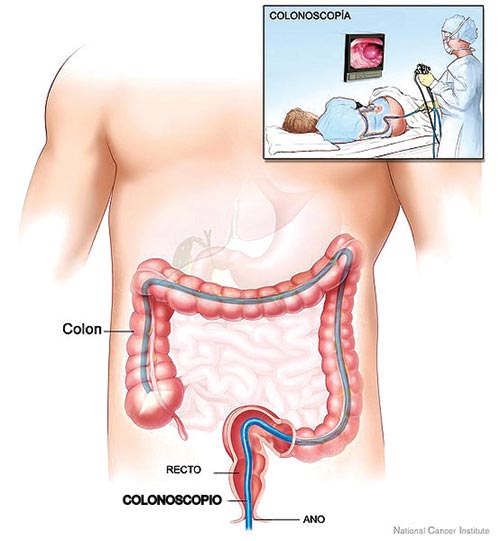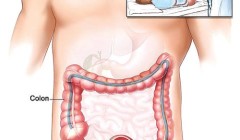No Butts About It!
I received a lot of responses to my Bitch Bitch Bitch column from last month. One person asked me if was ever going to write about real medical issues as the column is labeled Preventive Medicine. So here you go Stan!
 There’s a new player in town…cancer town that is. That player is a test called Cologuard. Colon cancer is the second leading cause of cancer death in men and women so it’s obviously important. This is not some obscure disease we are talking about like the Pustular Psoriasis of Von Zumbusch or the Spreading Depression of Laeo. This is a disease that is killing someone in your family or your neighborhood. And colon cancer is not a quick easy death. There is much we can do to you and for you before the end. The NIH spends roughly 270 million dollars a year just funding studies of colon cancer. This figure does not include the detection of cancer, the treatment of cancer, etc. How do you put a number on the emotional toll of cancer? So, it’s a big deal when we have a new approach to detecting colon cancer.
There’s a new player in town…cancer town that is. That player is a test called Cologuard. Colon cancer is the second leading cause of cancer death in men and women so it’s obviously important. This is not some obscure disease we are talking about like the Pustular Psoriasis of Von Zumbusch or the Spreading Depression of Laeo. This is a disease that is killing someone in your family or your neighborhood. And colon cancer is not a quick easy death. There is much we can do to you and for you before the end. The NIH spends roughly 270 million dollars a year just funding studies of colon cancer. This figure does not include the detection of cancer, the treatment of cancer, etc. How do you put a number on the emotional toll of cancer? So, it’s a big deal when we have a new approach to detecting colon cancer.
First, some facts and figures regarding colon cancer. The average American has a 5% risk of colon cancer in their lifetime. Another way of stating the same thing is that one person in 20 will get colon cancer. Men get cancer more than women but we don’t know why.The last year for which we have firm statistics is 2012 and approximately 25,0000 women and 25,000 men died of colon cancer that year. Cancer deaths are going down because of improved detection primarily from colonoscopy as far as we can tell. 90% of colon cancer incidents occur in people aged 50 and over. That’s why most people started having a screening colonoscopy at age 50. The important thing is to find the cancer while it can be excised simply without needing chemo or radiation, etc. Currently the #1 way to do this is with colonoscopy.
A colonoscopy is the insertion of a flexible lighted periscope into your rectum and looking into your colon for any kind of cancerous or precancerous lesions. It’s not cheap. It’s uncomfortable enough that for most people it requires a sedating injection. The prep which is required for the test is often considered the worse part of the whole procedure. You need to get cleaned out so the doctor can see enough to be sure he didn’t miss anything. Many people dislike the prep more than they dislike the procedure. If the preparation isn’t good enough the colonoscopy might have to be repeated and / or they might resort to using an older technique like a barium enema. There is a new technique called the virtual colonoscopy which is basically a barium enema and a CAT scan but I never recommend this because #1 it is a lot of x-ray exposure, #2 the doctor could miss something and therefore you suffer because of a misdiagnosis, or #3 the radiologist could and often does say he thinks it could be a polyp and therefore you have to have a colonoscopy anyway. With virtual colonoscopy you still have to do a similar prep so virtual colonoscopy doesn’t work for me. There have been, up to now, a couple of other options including testing the stool for blood in the doctor’s office or in a take home preparation. I have given out well over 1000 of those packets and only got about 10 back, so that scenario has not played out well either. Testing for blood is not the same as testing for cancer.
Now for the new guy in town, and that’s Cologuard. Don’t get me wrong …colonoscopy is still the “gold standard.” That’s the test I get. But for people that are unwilling or unable to have a colonoscopy there is a new technique that’s called Cologuard. It involves simplly sending a sample of your stool to the company where it is tested 11 different ways for any evidence of cancer. The test is 92% sensitive in the detection of cancers and that’s a very good number in medicine. The test is not perfect but neither is colonoscopy. The test report comes back simply negative or positive.. if it’s positive you need a colonoscopy…if it’s negative you are probably ok and can discuss what to do next, and when, with your physician. So if you have been neglecting getting your bowels checked for cancer it’s time to bring this article to your doctor and ask him what they think of this test and if it is for you. The test is for average risk people…it’s not meant for people who are known to be at increased risk for cancer, like people with a family cancer syndrome or patients with a history of colitis. Hopefully your doctor is familiar with the test and maybe a life will be saved. What a great way to start the summer. Until next time …get well and stay well.











